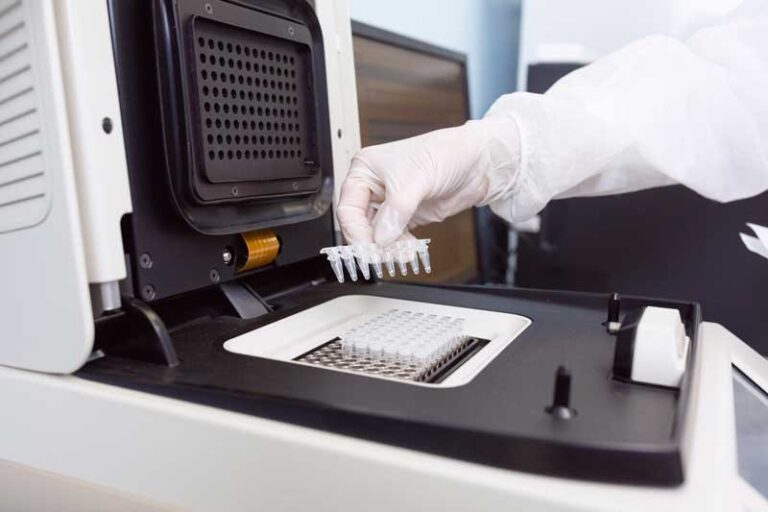
qPCR services have revolutionized biological and clinical research, offering a powerful tool for DNA amplification and quantification. This article delves into the intricacies of qPCR assay development, emphasizing the importance of sensitivity and specificity. Additionally, we explore the synergies between qPCR Services and the Meso Scale Discovery assay for enhanced insights in bio-scientific research.
Key Considerations in qPCR Assay Development:
Primer Design Validation:
- Ensure homologous primers for the target sequence.
- Verify the correct reverse complement primer.
- Address splice variants and avoid SNPs to enhance specificity.
Optimizing Primer Concentrations:
- Consider a final concentration of 500 nM for primers and 250 nM for probes.
- Tailor concentrations for SYBR green I-based detection to minimize nonspecific amplification.
Must Read: Emerging Technologies Transforming Bioanalytical Laboratory Practices
Primer Annealing Temperature Optimization:
- Fine-tune annealing temperatures to achieve optimal specificity for the target sequence.
Probe Concentration Optimization:
- Evaluate probe concentrations (250 nM is standard) to balance cost-effectiveness and sensitivity.
- Perform standard curve analysis to validate optimal conditions.
Optimizing Reaction Components:
- Adjust reaction buffers through magnesium chloride optimization.
- Explore the addition of PCR enhancers for improved performance.
- Modify instrument ramp rates to address sensitivity challenges.
Validating Assay Performance:
- Rigorously validate primer design and assay conditions for reliability.
- Use standard curve analysis to ensure consistent and accurate quantification.
Integration with Meso Scale Discovery Assay:
- Explore the complementary nature of qPCR services and Meso Scale Discovery assay for comprehensive biological insights.
- Harness the strengths of both technologies to advance analytical testing in diverse pharmaceutical domains.
Conclusion
In the evolving landscape of biological and clinical research, qPCR services play a pivotal role. However, the true potential lies in meticulous assay development and validation to enhance sensitivity and specificity. By seamlessly integrating with technologies like the Meso Scale Discovery assay, qPCR services can transcend conventional boundaries, offering a robust platform for transformative advancements in various scientific domains.